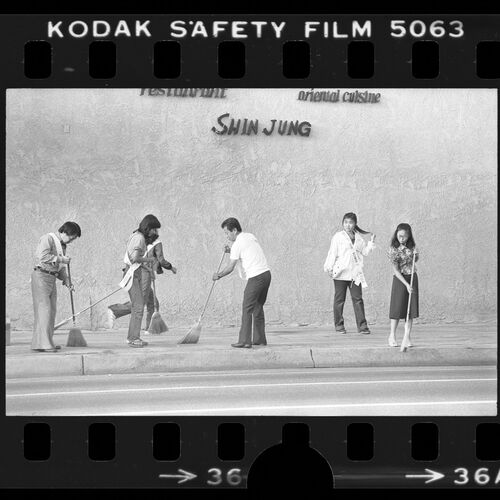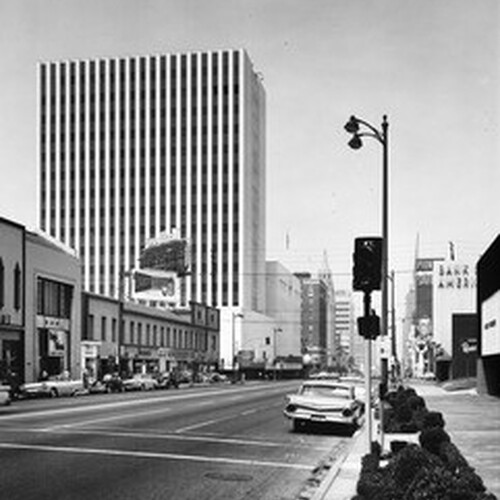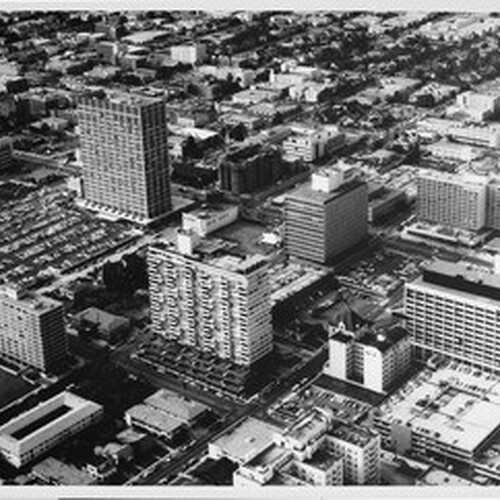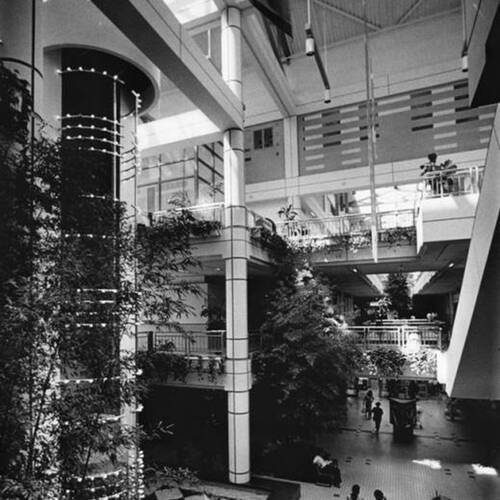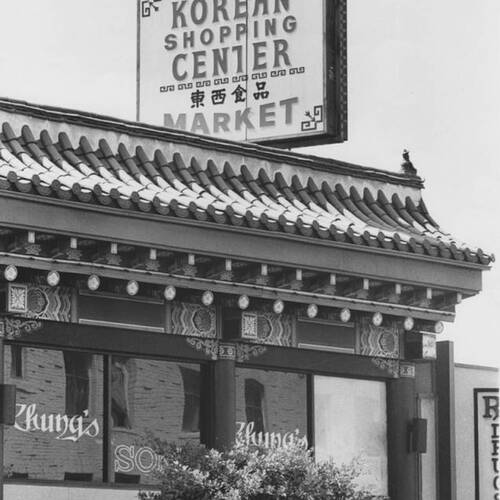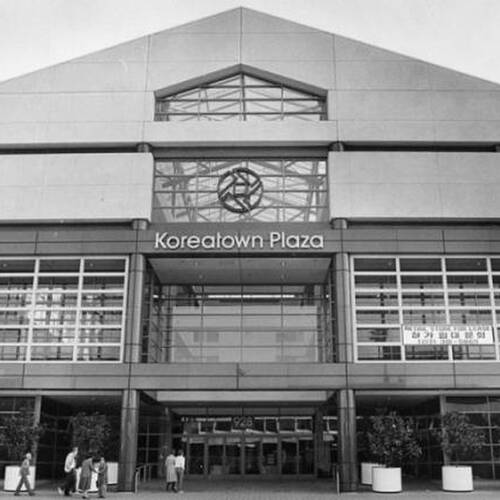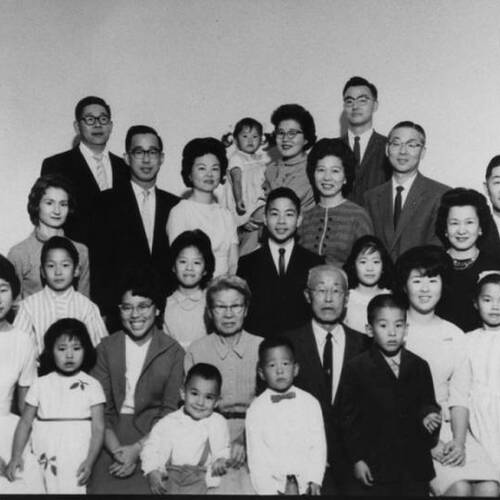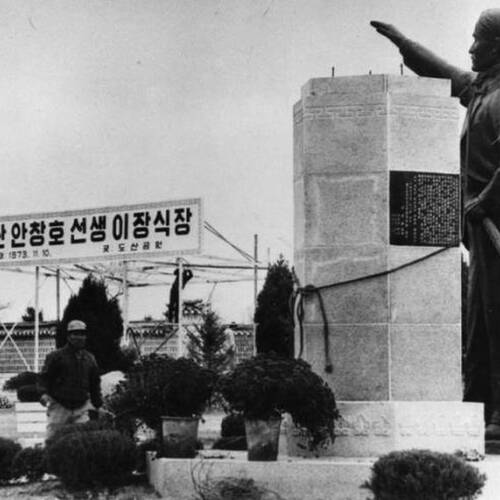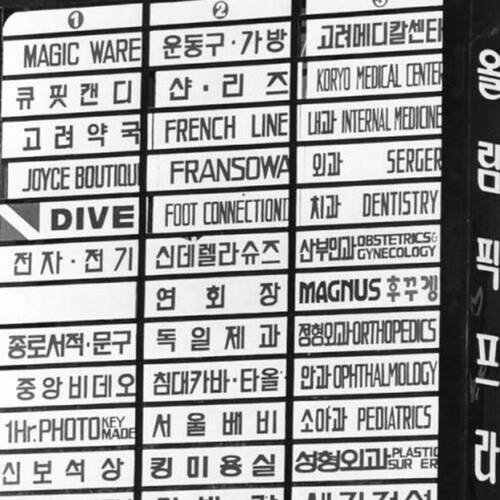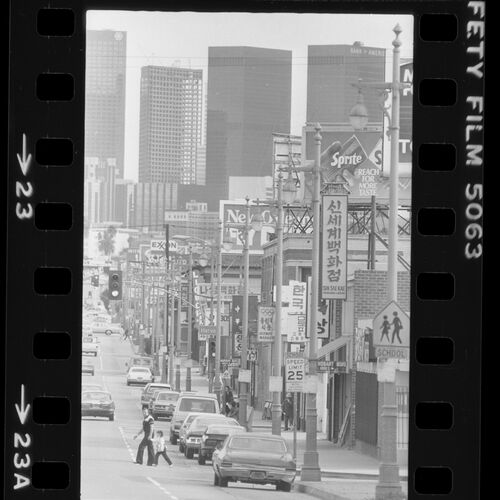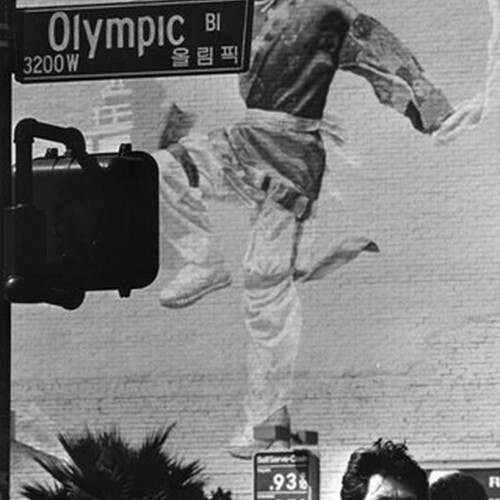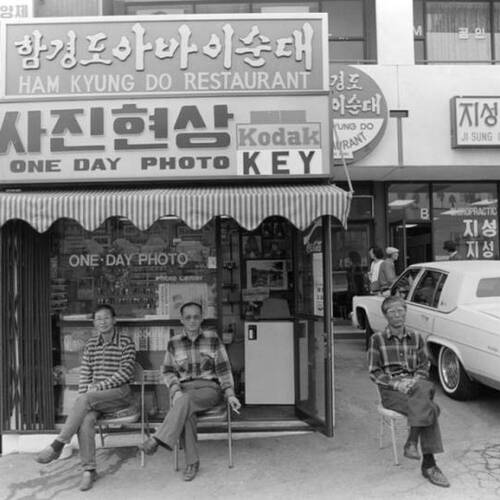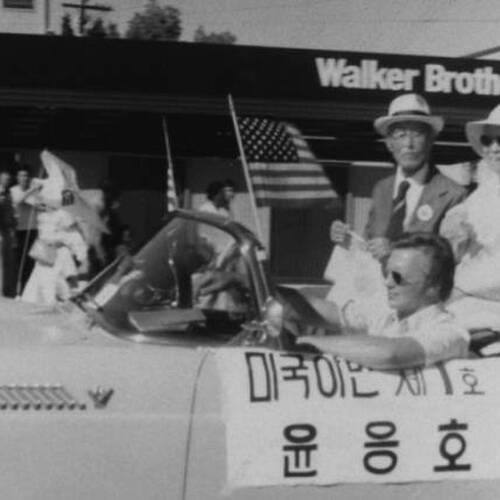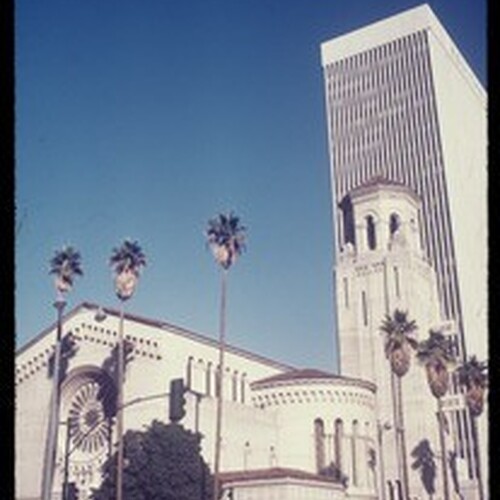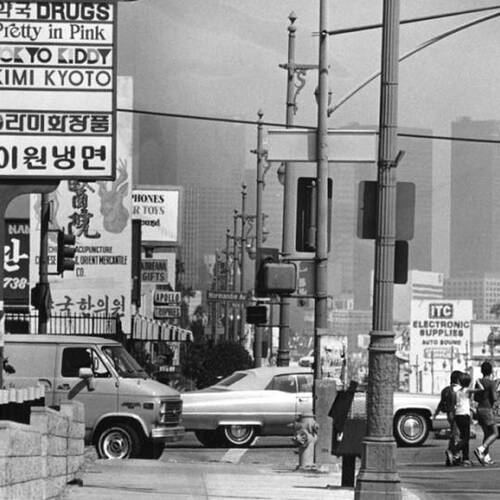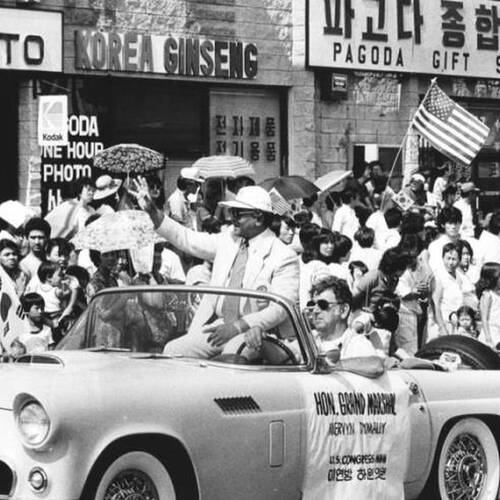Settlement in Los Angeles
Settlement
Small communities of Korean immigrants established themselves in Los Angeles and served as a magnet for additional immigrants. Family and community ties played a significant role in encouraging new arrivals to settle in the area. Immigrants often had friends and relatives already living in Los Angeles who could provide support and assistance which greatly contributed to the formation of small Korean businesses.
During the 1980s and 1990s, many businesses in low-income neighborhoods that occupied majority-black neighborhoods like Los Angeles were owned by Korean immigrants. Korean immigrants were considered to be “middle minorities” or “immigrant entrepreneurs” as they were able to manage and dominate many small businesses and enter intermediate economic status. They were able to purchase these stores in the inner-city areas because competition and cost for these spaces were relatively low. As a result, the types of Korean businesses, on average, are smaller, more concentrated, and serve more co-ethnic and low-income minority customers.
Because Korean immigrants ran small mom-and-pop shops, they were more vulnerable to racial violence and aggression since they worked much more closely with low-income communities. These types of conflicts further strengthened their ethnic solidarity among each other. Immigration and changes in the social and economic aspects of American society have been seen as the impetus for further conflict among marginalized groups, such as African Americans and Koreans.
Heightened Anxieties
The economic imbalance was a factor that contributed to the racial tensions between African Americans and Korean immigrants because Koreans owned shops in lower-income neighborhoods that were predominantly Black neighborhoods. This economic hierarchy greatly contributed to the tensions as Black communities claimed that Korean merchants were actively trying to economically hinder them and prevent the rise of Black businesses.
A combination of anxiety and cultural differences also added to the misunderstanding and misrepresentation of Korean Americans and African Americans alike. There were issues revolving around a “proprietary claim” meaning that racial and ethnic communities naturally claim various aspects of life. In this case, we can see that Korean immigrants made their proprietary claim to manage stores.
The second factor to consider is the fear of socioeconomic instability and insecurity. This had a great impact on people of color as it led to the formation of racial prejudices towards other marginalized groups. This then led to different marginalized groups forming social distances from groups deemed to be of a lower social ranking. Additionally, the 1979-1982 economic recession destroyed the industries that employed the majority of African Americans in South/Central Los Angeles.
Korean shopkeepers became a focal point for the frustration of African American residents due to the rapid success of Korean immigrants as the majority of Black residents in Los Angeles remained trapped in low-income neighborhoods. Korean immigrants were able to elevate their status quickly considering how recently they immigrated to the United States. The animosity towards the Korean immigrants grew as they were another example of a new immigrant group that surpassed the Black community and reinforced the racial hierarchy.
